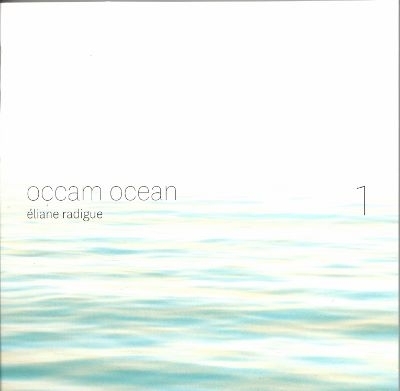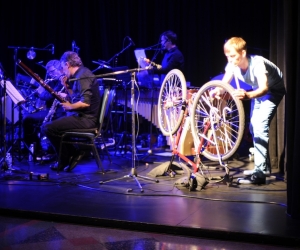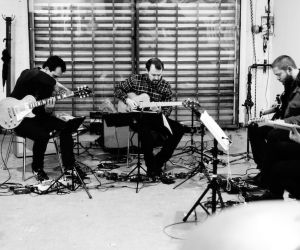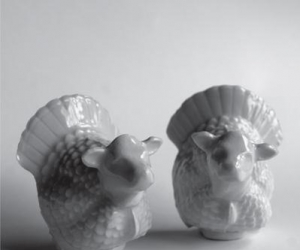
The French composer Éliane Radigue has moved through various stages in her career. After working as an assistant to electronic-music pioneer Pierre Henry, she started using controlled feedback to create pieces. She worked with synthesizers for a considerable time, then decided to have others perform according to her instructions. In a way, she has taken this to another level on Occam Ocean 1, a double album that features three musicians: Carol Robinson on birbyné (a Lithuanian clarinet), viola player Julia Eckhardt, and Rhodri Davies, who plays his harp with two bows. Once, when she was looking for new directions in which to take her music, she saw a mural depicting waves of extreme length connecting the planets in our solar system, and other systems with ours. The concept of space filled with waves inspired her to have musicians play a variety of harmonics to interact with the acoustics of a room. She envisioned this as waters running, coalescing and finally flowing into the oceans. Sound in perpetual motion. In the five pieces that this set comprises, Radigue invites you to listen beyond the fundamental tone in the foreground and concentrate on the rich palette that emerges from it, a wealth of subtle, delicate sounds. It is an exercise in disciplined, focused listening, but a deeply rewarding one—comparable, one imagines, to diving under a polar ice sheet and discovering translucent life there in a myriad of fragile forms. In a quiet way this is astonishing music.


